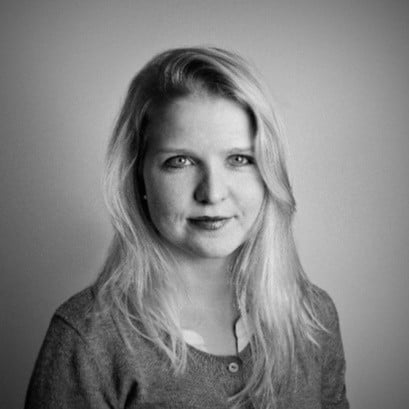Yue Jie, who goes by the preferred name Sean, has a graduate degree in Strategic Communication from Lund University. Sean told The Local he has been unable to accept a job offer with a Danish company due to Denmark’s work permit rules for citizens of so-called ‘third countries’ — meaning non-EU or EEA countries.
Although it is possible for Swedish residents to work in Copenhagen without a work permit, this is only available to EU or Nordic citizens.
READ ALSO: Cross-border workers: Who is able to live in Sweden and work in Denmark?
Meanwhile, the number of job vacancies in Denmark remains at one of the highest levels for years, with many sectors affected and companies reporting a lack of labour, including skilled workers.
Figures published by national agency Statistics Denmark last month show that unemployment fell to 72,000 persons between February and March, the lowest level since June 2008. Such a small labour pool means companies find it hard to recruit specialised staff.
Denmark and Sweden work together on some areas in an effort to promote cross-border working in the Øresund region which spans the two countries, but this does not stretch to work and residence permits for non-EU nationals.
READ ALSO: Are international workers the answer to Denmark’s labour shortage?
“Originally from Singapore, I’m finishing my Master’s degree studies at Lund University over in Sweden and I’m currently on the search for jobs as I am due to complete my studies,” Yue told The Local.
“For the last month and a half, I’ve been sending job applications both in Copenhagen and in Malmö as these are the two biggest cities within my geographical vicinity,” he said.
“I’ve been in contact with at least two companies in Copenhagen for job applications and interviews, and at least one of them has even offered me a contract for a summer or part-time job this summer. This means that there is, at this point, nothing stopping me from simply crossing the Öresund Bridge from Skåne to Copenhagen anytime for work,” he said.
“The only issue here is that company requires a CPR number in order to pay out my salary, and a CPR number for non-EU nationals cannot be given without a work permit. Another company that recently interviewed with, the recruiter wants to hire me but she could not based on the requirements of the Danish work permit for non-EU (nationals),” he explained.
“I have the knowledge, skills and competencies, and can easily come to the office with a train commute from Sweden, but they cannot offer me employment based on this requirement alone,” he said.
Although non-EU nationals can apply for work permits in Denmark via a number of pathways, Yue said that the only one under which he can potentially fulfil approval criteria is the Pay Limit Scheme or Beløbsordningen in Danish.
The Pay Limit Scheme sets a minimum salary which businesses must pay skilled non-EU nationals in order for the employee to qualify for a Danish work permit. It is currently set at a minimum annual wage of 448,000 kroner.
The Confederation of Danish Industry (Dansk Industri, DI), a business and employers’ interest organisation representing around 19,000 companies in Denmark, told The Local it wanted to see the minimum wage required under the Pay Limit Scheme reduced, and was lobbying to achieve that objective.
“We at DI are working to reduce the current salary threshold on the Pay Limit Scheme from the present 448,000 kroner to 360,000 kroner,” the organisation’s senior political consultant Søren Kjærsgaard Høfler, who specialises in global mobility, said in a written comment.
“We are doing this with particular focus on attracting skilled international workers from outside of the EU and EEA,” he said.
The Pay Limit Scheme has recently been the subject of political discussions due to Denmark’s labour shortage and the need to attract more international workers.
READ ALSO: How can you get a work permit in Denmark if you are not an EU national?
Under current rules, a work permit can be granted under the Pay Limit Scheme for applicants offered salaries of at least 448,000 kroner a year. No specific educational background or a job within a specific professional field is required.
The government earlier this year proposed that the annual salary requirement be lowered to 375,000 kroner over a two-year period, to allow more international workers into Denmark on the scheme.
DI’s global mobility consultant told The Local that the organisation’s work to smooth the path for foreign recruitment in Denmark was focused on retaining international students from Danish universities. Nevertheless, a reduction of the Pay Limit Scheme’s minimum salary requirement could also benefit other foreign skilled workers.
“Traditionally, we have at DI focused on the options for residence and work for international students who have completed their studies in Denmark. We have made some progress here and we think this is beneficial for Danish companies,” Høfler said.
“We therefore want to make our own education system attractive and relevant for students who are thinking about staying in Denmark after finishing their studies,” he said.
“When studies are not undertaken in Denmark, we fall back on the existing business schemes [used to grant work permits for non-EU and EEA nationals, ed.], which includes the Pay Limit Scheme, which currently requires (a salary of) 448,000 kroner. DI is working to reduce this threshold, which might help in the case in question,” he said when asked about the impact of the scheme on job hopefuls not already in Denmark.
A non-EU national who previously worked in Denmark, but left due to issues caused in part by the Pay Limit Scheme, told The Local her experience made her feel “very frustrated”.
“In early 2019, I was let go from my job in Denmark. I consulted with my union at the time about my chances of finding a job and was told that it would be tough but possible. Thus, I moved to a visa for job-seekers [which allows non-EU nationals to remain in the country for six months to find work, ed.] and began looking for a new job,” said the ex-Denmark resident, who preferred to remain anonymous. The Local is aware of the person’s identity.
Whilst searching for a new job in Denmark, she passed interview stage with an organisation before being rejected. “Later, I learned that the position’s compensation was lower than the Pay Limit Scheme and for that reason (the company) didn’t offer it to me, knowing that I would not be able to take it anyway,” she said.
“I realised that I was stuck because I was not qualified for a position that would pay me enough, while the position that I was qualified for would not pay me enough. I believed the root cause was that my profile (Southeast Asian, educated outside of Europe, humanities major, no Master’s degree, non-Danish speaker, three years of working experience at the time) was not strong enough to procure a job that would satisfy the Pay Limit Scheme,” she said.
“At the time I was very frustrated, especially because if it weren’t me but someone from inside the European Union, they would have been able to get the position (with the company that interviewed me) and continue staying in Denmark. Thus I felt the fact that I was not able to get the position due to my background was unfair,” she said.
“I (also) felt that my life as a single foreigner in Denmark was unstable because the rules governing the Pay Scheme Limit could be changed in the future,” she also noted.
Yue, a communications professional specialised in sales and business development, told The Local that the Pay Limit Scheme was his only hope of being able to work for a Danish company.
“I’m a communications professional, so there is essentially only one category which I can apply under – the Pay Limit Scheme,” Yue told The Local.
“The recruiter that I interviewed told me that the salary for the entry-level position I applied for has a salary below this requirement, thus they cannot hire me,” he said.
The Singaporean told The Local that he wanted “to highlight my situation as a current resident already in Sweden and the nature of such migration/immigration issues within Denmark.”
“If there are any Danish employers out there or international companies in Denmark who are willing to hire me because they recognise that I can be a valuable employee to their organisation, I’m willing to speak with them,” he said.
Sean Yue can be contacted via LinkedIn.




 Please whitelist us to continue reading.
Please whitelist us to continue reading.
Member comments